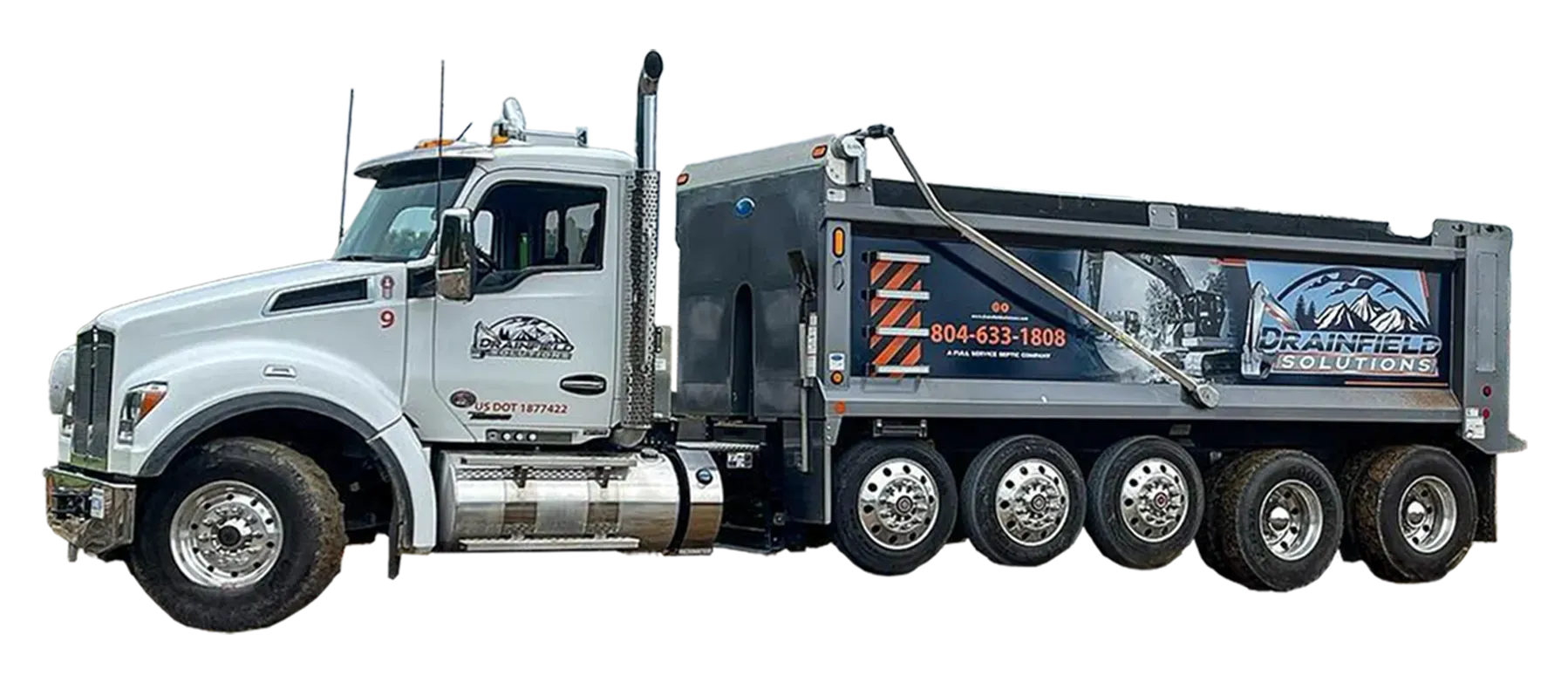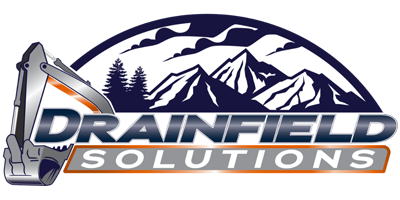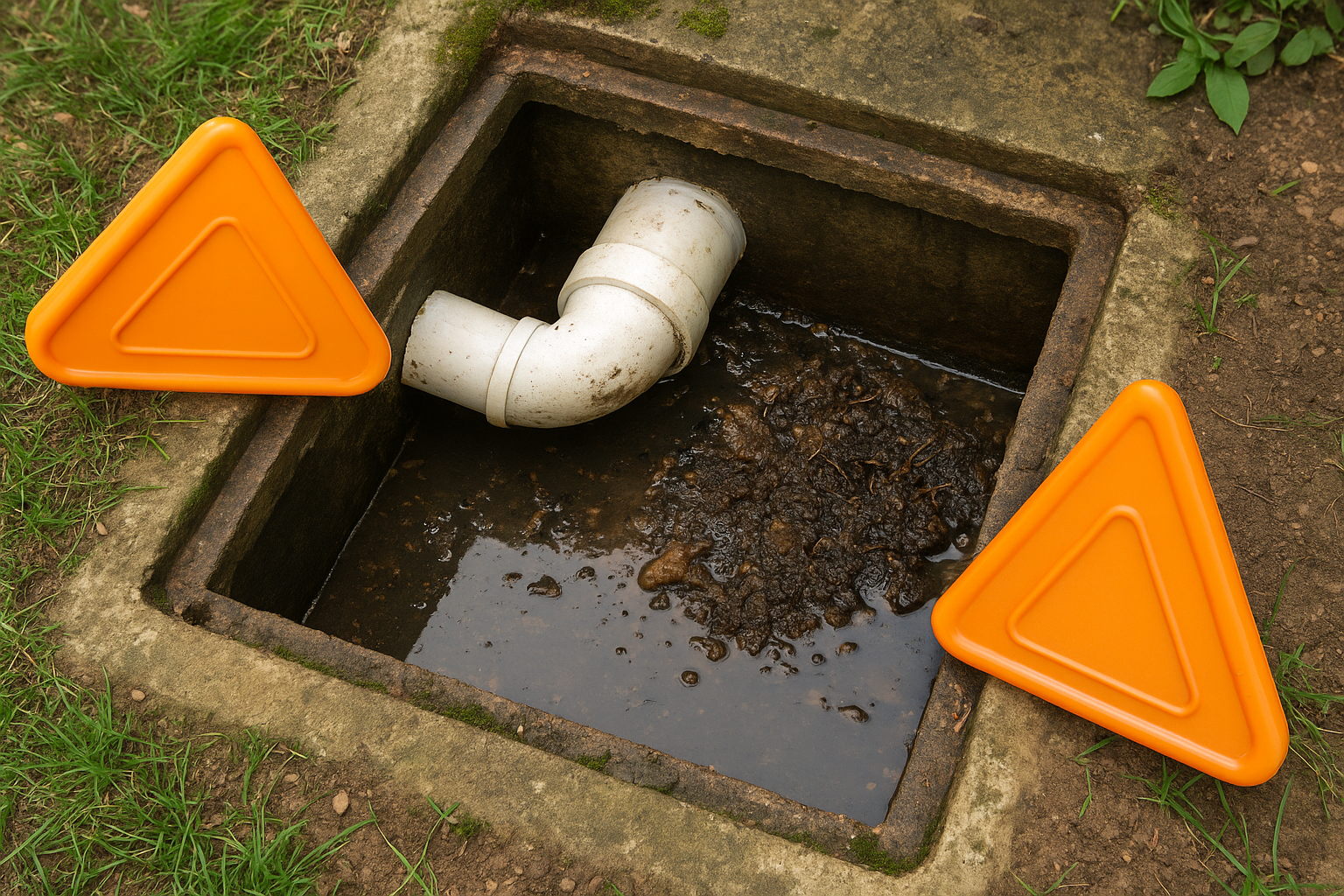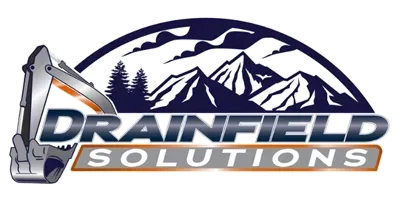
Septic Tank Pumping in Central Virginia: Keep Your Septic System Healthy
November 27, 2024
In the hustle and bustle of modern life, many homeowners often overlook the importance of maintaining their septic systems. However, ensuring the health of your septic tank is crucial for avoiding costly repairs and ensuring the smooth operation of your home's wastewater management.
In this post, we'll explore why regular septic tank pumping is essential for system health, particularly focusing on septic tank pumping in Central Virginia, and how it can prevent drainfield repair issues. Let's dig into the nitty-gritty of septic maintenance and why it's a must-do for homeowners.
Understanding the Basics of Septic Systems
Septic systems are underground wastewater treatment structures commonly used in areas without centralized sewer systems. They consist of a septic tank and a drainfield.
The septic tank holds wastewater long enough to allow solids to settle to the bottom while oil and grease float to the top. The liquid wastewater then flows into the drainfield, where it undergoes further treatment.
For a septic system to function properly, it requires regular maintenance. This includes pumping the septic tank to remove accumulated sludge and scum solids. Without regular septic tank pumping, the system can become overloaded, leading to potential backups and damage to the drainfield.
The Role of the Septic Tank in Waste Management
The septic tank plays a critical role in waste management for homes not connected to municipal sewer systems. It acts as the first stage of wastewater treatment, separating solids and scum from liquid wastewater. This separation process is crucial for preventing clogs and allowing the system to function efficiently.
Regular septic tank pumping is necessary to remove the buildup of sludge and scum. Over time, these solids can accumulate and reduce the tank's capacity, leading to potential overflows and damage to the drainfield. Pumping ensures the tank has enough space to continue separating solids from liquids effectively.
Why Regular Septic Tank Pumping Is Essential
Regular septic tank pumping is essential for several reasons. First and foremost, it helps prevent costly repairs. When a septic tank becomes overloaded with sludge and scum, it can lead to clogs, backups, and even damage to the drainfield. These issues can be expensive to repair, making regular pumping a cost-effective preventive measure.
Furthermore, regular pumping extends the lifespan of the septic system. By maintaining the tank's capacity and preventing the buildup of solids, homeowners can avoid premature system failure and the need for a complete replacement. Routine maintenance not only saves money but also ensures the system continues to operate efficiently.
How Often Should You Pump Your Septic Tank?
The frequency of septic tank pumping depends on several factors, including the size of the septic tank, the number of people in the household, and water usage. On average, you should have septic tank pumping done every 3 to 5 years. However, it's important to consult a professional to determine the specific needs of your septic system.
Septic tank pumping in Fredericksburg, VA, is readily available to help homeowners maintain their systems. Regular scheduling with a professional ensures the tank is pumped at the right intervals, preventing potential issues and keeping the system in optimal condition.
Signs You Need Septic Tank Pumping
There are several telltale signs that you need septic tank pumping. They include:
1. Slow Drains:
If you notice sinks, showers, or bathtubs draining slower than usual, this may indicate your septic tank is full and requires pumping.
2. Foul Odors:
Persistent unpleasant smells around your home, especially near drains or the area where the septic tank is located, can be a sign that the tank is reaching capacity.
3. Standing Water:
Pools of water or soggy patches in the area above the drainfield suggest that the system is not efficiently processing wastewater.
4. Sewage Backups:
The most severe sign is sewage backing up into toilets, sinks, or bathtubs, indicating an urgent need for septic tank maintenance.
5. Lush Grass:
A noticeably greener or lusher patch of grass over the septic tank area compared to the rest of your yard can indicate a leaking or overflowing tank.
If you notice any of these signs, it is best to call professionals for help.
The Consequences of Neglecting Septic Maintenance
Neglecting septic system maintenance can lead to serious consequences. When you do have septic tank pumping performed regularly, solids can accumulate and clog pipes, leading to backups in the home. This can result in unpleasant odors, damage to plumbing fixtures, and potentially costly repairs.
In addition to causing backups, neglecting septic maintenance can damage the drainfield. The drainfield is an essential component of the system, responsible for further treating wastewater. When solids overflow from the septic tank, they can clog the drainfield, leading to reduced efficiency and the need for costly repairs or replacement.
Preventing Drainfield Repair with Regular Septic Tank Pumping
One of the most significant benefits of regular septic tank pumping is the prevention of drainfield failure. The drainfield is where treated wastewater is dispersed into the soil for additional purification. If the septic tank is not pumped regularly, solids can overflow and clog the drainfield, leading to costly repairs.
By maintaining a regular septic tank pumping schedule, homeowners can ensure that only liquid wastewater enters the drainfield, allowing it to function efficiently. This preventive measure not only saves money but also extends the lifespan of the entire septic system.
The Importance of Professional Septic Services
While some homeowners may attempt DIY septic maintenance, it's essential to rely on professional services for septic tank pumping and inspections. Trained technicians have the expertise and equipment to properly assess and maintain septic systems. They can identify potential issues before they become major problems, ensuring the system operates smoothly.
Septic tank pumping professionals in Stafford, VA, like Drainfield Solutions, offer comprehensive services, including septic tank pumping, septic inspections, and septic maintenance. Regularly working with a professional ensures that your system remains in optimal condition, providing peace of mind and preventing costly repairs.
Tips for Maintaining a Healthy Septic System
In addition to regular septic tank pumping in Ruther Glen, VA, there are several tips homeowners can follow to maintain a healthy septic system. First, be mindful of what you flush down the toilet or pour down the drain. Avoid disposing of non-biodegradable items, chemicals, and grease, as these can clog pipes and disrupt the system.
Conserving water is also crucial for septic system health. Excessive water usage can overload the system and lead to backups. Consider installing low-flow fixtures and spreading out laundry loads to reduce strain on the system.
Conclusion
Regular septic tank pumping in Central Virginia is a crucial aspect of maintaining a healthy and efficient septic system. By following a routine septic tank pumping schedule, homeowners can prevent costly repairs, extend the lifespan of their systems, and contribute to environmental protection. For those in Central Virginia communities, including Louisa, Mechanicsville, Warsaw, and King George, professional septic services offer the expertise and support needed to keep your system in optimal condition.
Don't wait for septic system problems to arise—take proactive steps to ensure your system remains in top shape. Contact Drainfield Solutions, septic system experts in Central Virginia!
Share Post
Latest Posts
Ready to Take the Next Step?
Whether you're in need of a system inspection or regular maintenance, Drainfield Solutions is here to help. Get in touch today for reliable service you can trust.






